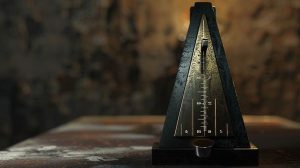
The Benefits of the Ear to Instrument Connection
I recently watched a video performance by the amazing classical pianist Yuja Chang. I’ve seen her memorizing motion and heard her virtuosic playing before, but something hit me after seeing
Categories:
Categories:
I’m building a new way to distribute all of my content online, and currently focused on how best to describe its value and how it’s different from everything else out there.
So I’ve been thinking…
There’s no shortage right now of diverse online jazz learning resources, from single source musicians to large sites featuring great players. But I see one thing that is missing in most of them.
Things changed in the late 1950’s when learning jazz started transitioning from hanging and playing with a master musician to formally teaching the technical craft of improvisation within high schools and colleges.
At least in the schools, they retained certain elements of playing and hanging with other good players. Moving this formal education model of jazz online has stripped that element away from learning.
Look through today’s online jazz classes, videos, and newsletters and you’ll see that most of its content focuses primarily on some element of music theory. ‘The Math’ as I like to call it-so many scales, patterns, and licks, and most of it without any musical context to guide you properly in their use.
For a certain type of musician who knows they have music inside them wanting to come out their instrument, what they’re learning online results in a constant analysis during their improvisation about the chords and scales. And all that gets in their way. I hear this from people nearly every day. This mostly technical knowledge of the music is not serving them well.
There’s so much educational emphasis on memorizing and parroting the ‘right’ notes that players aren’t developing their ears for deeper listening.
That ‘music math’ will serve you if you keep it in its proper place. But if you focus on the music theory and instrument mechanics during the heat of performance, your best and most authentic music will never make it out of your instrument.
As a solution, what I’ve been teaching is what I think is missing from other online jazz resources. Although “teaching’ is the wrong word for what I provide people. It’s more like I provide tools enabling players to hear for themselves what has been there all along. Deep listening.
For performance, I emphasize right brain over left, present moment playing rather than time traveling to the future or past, and the primacy of intuition over ‘the math’.
A friend reminded me today of this entertaining one-minute clip I created years ago illustrating the tug of war that can occur between brain hemispheres when playing jazz. Sound familiar?Have you discovered that there is not enough emphasis in online jazz education on listening to the sounds around you and to your musical intuition? Part of what’s missing is teaching you the actual purpose and context of all those scales, patterns, and transcriptions filling tens of thousands of online instruction hours.
When it’s your time to play some jazz, move to the back of your brain all those thoughts about mouth positions, breathing, posture, and the math of music theory. Allow your brain to focus on what’s happening around you and on those emotions that translate through your fingers into the melody, rhythm, and harmony of a satisfying improvised story.
I’ve been time-stamping and cataloging the interviews from last year’s Jazz Master Summit in order to put those along with new interviews into my upcoming new platform, and I was reminded of something from the great drummer Lenny White.
I asked Lenny about what direction if any, Miles gave him during the recording sessions for Bitches Brew.
Think about how Lenny’s answer relates to my critique of online learning.

Trombonist, author, marketer, & tech guy
Share this post…

I recently watched a video performance by the amazing classical pianist Yuja Chang. I’ve seen her memorizing motion and heard her virtuosic playing before, but something hit me after seeing

I have created a AI chatbot called Jazz Master Chat that draws from 75 hours of interviews from my Jazz Master Summit event a couple of years ago. I interviewed

What is jazz improvisation? Let’s first define what I mean by jazz improvisation. Jazz improvisation is a spontaneous conversation, but instead of words, we use notes. Look at two possible

My recently turned 18-year old son is a passionate photographer. He’s got himself a little business where people pay

A couple weeks ago I sent Richie Beirach a YouTube clip from the movie Whiplash as a bit of

I originally meant to write this as a reply to a comment Richie Beirach wrote on my blog. But

Tools for helping musicians at all levels learn about jazz and play to their full capability.
Web design and marketing by:
Michael Lake @JazzDigitalMarketing.com
This is just a fake book example for the type of website I can build for you. Just trying to use a little humor here!